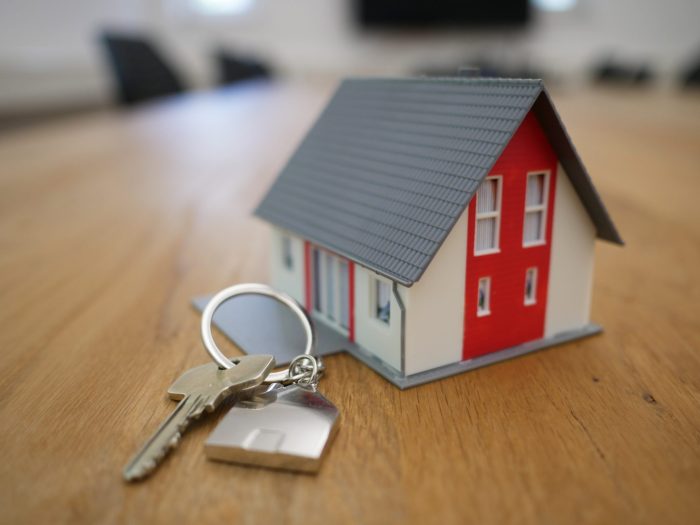Embarking on the journey to buy a house involves a myriad of decisions and factors to weigh. From location preferences to financial planning, this guide delves into the essentials of purchasing a property, ensuring you're equipped with the knowledge needed to navigate the real estate landscape successfully.
Delve deeper into the nuances of property types, the steps involved in the buying process, and the critical financial considerations that can impact your decision-making. Whether you're a first-time buyer or seasoned investor, this comprehensive exploration aims to shed light on the intricacies of buying a house.
Factors to Consider Before Buying a House
Before diving into the process of buying a house, there are several important factors that you should consider to ensure you make the right decision.
Importance of Location
Location plays a crucial role in real estate decisions as it can greatly impact your quality of life and future property value. When looking for a house, consider factors such as proximity to amenities, schools, transportation, and overall neighborhood safety.
Essential Features to Look For
- Structural Integrity: Ensure the house is in good condition with no major structural issues.
- Size and Layout: Consider the number of bedrooms, bathrooms, and overall layout that suits your needs.
- Amenities: Look for features like a backyard, garage, or updated kitchen that add value to the property.
Budgeting and Financial Planning
Setting a budget and financial planning are essential steps when purchasing a home. Consider factors like down payment, monthly mortgage payments, property taxes, and other associated costs to ensure you can comfortably afford the house without financial strain.
Types of Properties Available for Purchase

When looking to buy a property, there are various options to consider that suit different preferences and lifestyles. Understanding the differences between buying a house, condo, or townhouse, as well as the advantages and disadvantages of new construction versus pre-owned homes, can help make an informed decision.
Additionally, knowing the process of buying a foreclosed property and the potential risks involved is crucial for a successful purchase.
Buying a House, Condo, or Townhouse
- House:Houses offer more privacy and space compared to condos or townhouses. However, they require more maintenance and upkeep.
- Condo:Condos are typically more affordable and come with amenities like swimming pools and gyms. However, there are monthly association fees and less privacy.
- Townhouse:Townhouses are a middle ground between houses and condos, offering both space and amenities. They may have shared walls and common areas.
New Construction versus Pre-Owned Homes
- New Construction:New homes offer modern features and designs, with fewer maintenance issues initially. However, they can be more expensive and may lack established neighborhoods.
- Pre-Owned Homes:Pre-owned homes may have more character and be located in established neighborhoods. They could require more maintenance and updates but may offer better value for money.
Buying a Foreclosed Property
When buying a foreclosed property, it's important to consider that these homes are usually sold below market value but may come with risks. The process involves purchasing a property that the previous owner failed to pay for, leading to foreclosure by the lender.
It's crucial to conduct thorough inspections and research on the property's history to avoid any hidden issues or liabilities.
Steps Involved in Buying a House
When it comes to buying a house, there are several crucial steps that need to be followed to ensure a smooth and successful purchase. From house hunting to closing the deal, each stage plays a significant role in the process
House Hunting and Creating a Wishlist
Before starting the actual search for a house, it's essential to create a wishlist outlining your preferences and requirements. Consider factors such as location, size, amenities, and budget to narrow down your options effectively.
Getting Pre-Approved for a Mortgage
One of the most important steps in the home buying process is getting pre-approved for a mortgage. This involves a lender assessing your financial situation and determining the amount you can borrow. Having pre-approval not only helps you understand your budget but also makes your offer more appealing to sellers.
Making an Offer and Closing the Deal
Once you've found your dream home, it's time to make an offer to the seller. This involves negotiating the price, terms, and conditions of the sale. If your offer is accepted, you'll move on to the closing stage, where all legal and financial aspects are finalized, and ownership of the property is transferred to you.
Financial Considerations When Buying a House

When purchasing a house, it's crucial to consider the financial aspects beyond just the initial purchase price. Understanding the additional costs involved, the impact of a down payment, and how to improve credit scores for better mortgage rates can significantly affect your overall financial health.
Costs Beyond the Purchase Price
- Closing Costs: These include fees for services such as appraisal, title search, and legal fees, typically ranging from 2% to 5% of the purchase price.
- Maintenance Expenses: Budget for ongoing maintenance and repairs to keep your home in good condition, such as HVAC servicing, roof repairs, and landscaping.
Down Payment and Mortgage Payments
- A down payment is a lump sum payment made upfront towards the purchase price, typically ranging from 3% to 20% of the home's value. A larger down payment can lower your monthly mortgage payments and reduce interest costs over time.
-
Tip: Aim for a down payment of at least 20% to avoid private mortgage insurance (PMI) and secure better loan terms.
Improving Credit Scores for Better Rates
- Pay bills on time, reduce outstanding debt, and check credit reports for errors to improve your credit score.
-
Tip: Maintain a low credit utilization ratio and avoid opening new credit accounts before applying for a mortgage to boost your credit score.
Final Conclusion
In conclusion, the process of buying a house is multifaceted, encompassing various elements that require careful consideration. By understanding the key factors and steps involved, you can embark on your house-buying journey with confidence and clarity. Armed with this knowledge, you're better prepared to make informed decisions and secure the home of your dreams.
FAQ Insights
What role does the location play in the decision to buy a house?
The location of a property is crucial as it impacts factors such as accessibility, resale value, and quality of life. Consider proximity to amenities, schools, and work when choosing a location.
What are the main differences between buying a house, condo, and townhouse?
Houses offer more privacy and space, while condos have shared amenities and townhouses may offer a middle ground. Consider your lifestyle and preferences when selecting a property type.
How can I improve my credit score to secure better mortgage rates?
To improve your credit score, pay bills on time, keep credit card balances low, and avoid opening multiple new accounts. Regularly check your credit report for errors and work on reducing debt.














